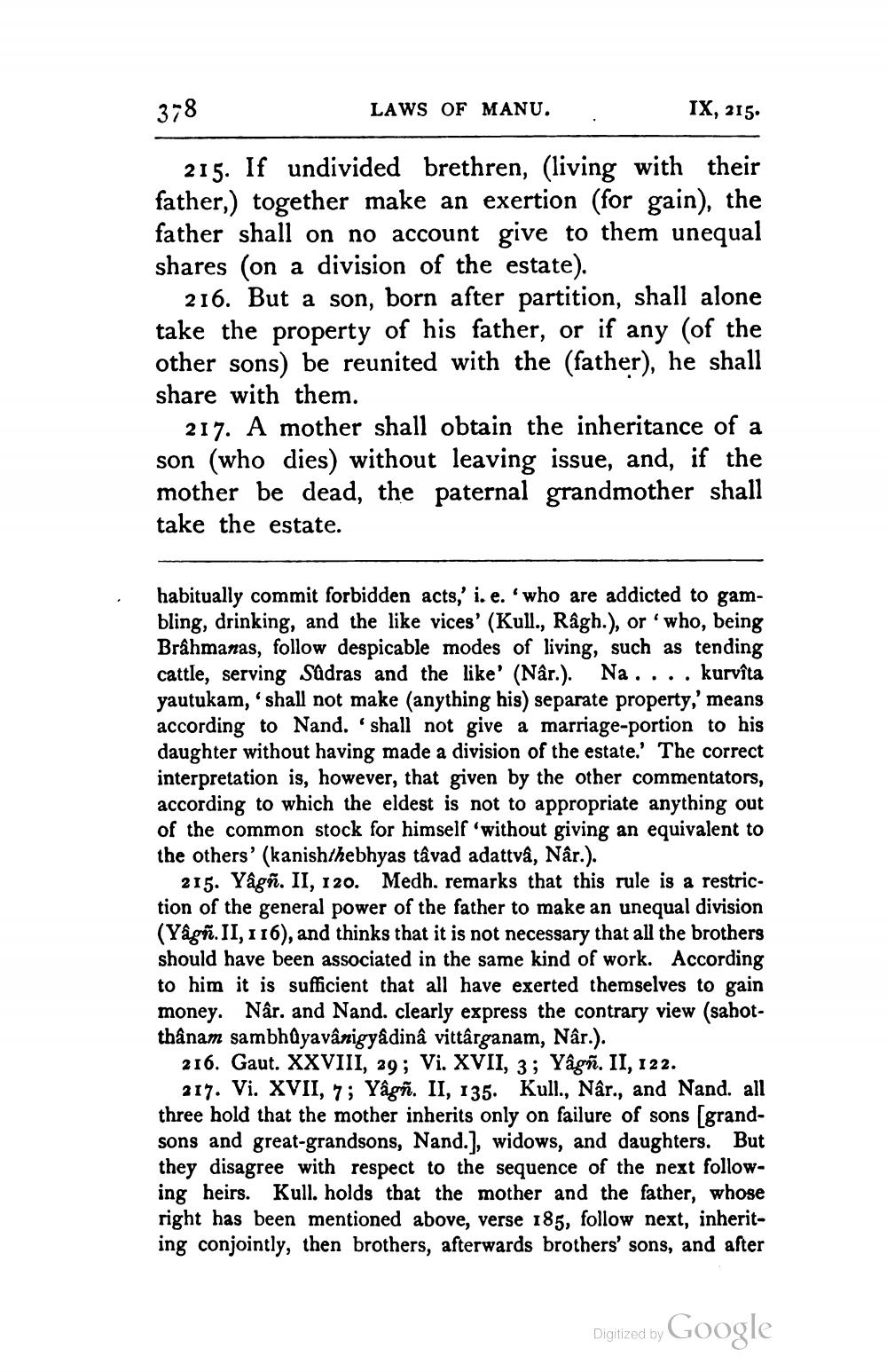________________
378
LAWS OF MANU.
IX, 215.
215. If undivided brethren, (living with their father,) together make an exertion (for gain), the father shall on no account give to them unequal shares (on a division of the estate).
216. But a son, born after partition, shall alone take the property of his father, or if any (of the other sons) be reunited with the (father), he shall share with them.
217. A mother shall obtain the inheritance of a son (who dies) without leaving issue, and, if the mother be dead, the paternal grandmother shall take the estate.
habitually commit forbidden acts,' i. e. who are addicted to gambling, drinking, and the like vices' (Kull., Râgh.), or who, being Brahmanas, follow despicable modes of living, such as tending cattle, serving Sadras and the like' (Nâr.). Na .... kurvíta yautukam, shall not make anything his) separate property,' means according to Nand. shall not give a marriage-portion to his daughter without having made a division of the estate. The correct interpretation is, however, that given by the other commentators, according to which the eldest is not to appropriate anything out of the common stock for himself without giving an equivalent to the others' (kanishthebhyas tâvad adattva, Nâr.).
215. Yâgñ. II, 120. Medh. remarks that this rule is a restriction of the general power of the father to make an unequal division (Yagñ. II, 116), and thinks that it is not necessary that all the brothers should have been associated in the same kind of work. According to him it is sufficient that all have exerted themselves to gain money. Når. and Nand. clearly express the contrary view (sahotthânam sambhūyavânigyâdinâ vittârganam, Nâr.).
216. Gaut. XXVIII, 29; Vi. XVII, 3; Yâgñ. II, 122.
217. Vi. XVII, 7; Yâgñ. II, 135. Kull., Nâr., and Nand. all three hold that the mother inherits only on failure of sons (grandsons and great-grandsons, Nand.), widows, and daughters. But they disagree with respect to the sequence of the next following heirs. Kull. holds that the mother and the father, whose right has been mentioned above, verse 185, follow next, inheriting conjointly, then brothers, afterwards brothers' sons, and after
Digitized by Google




